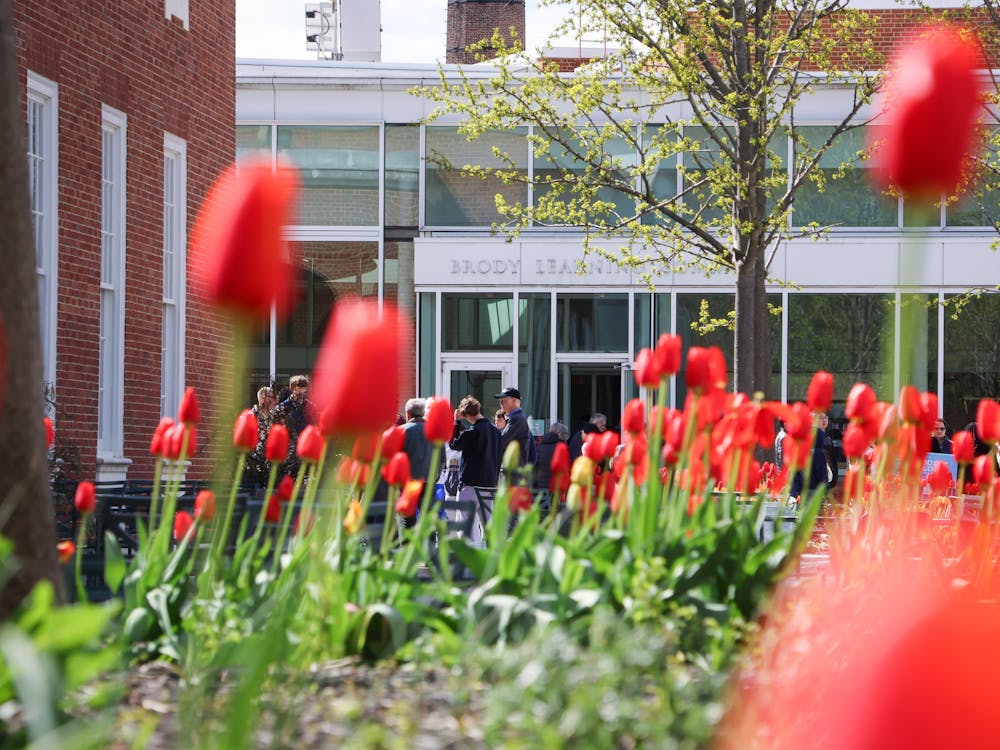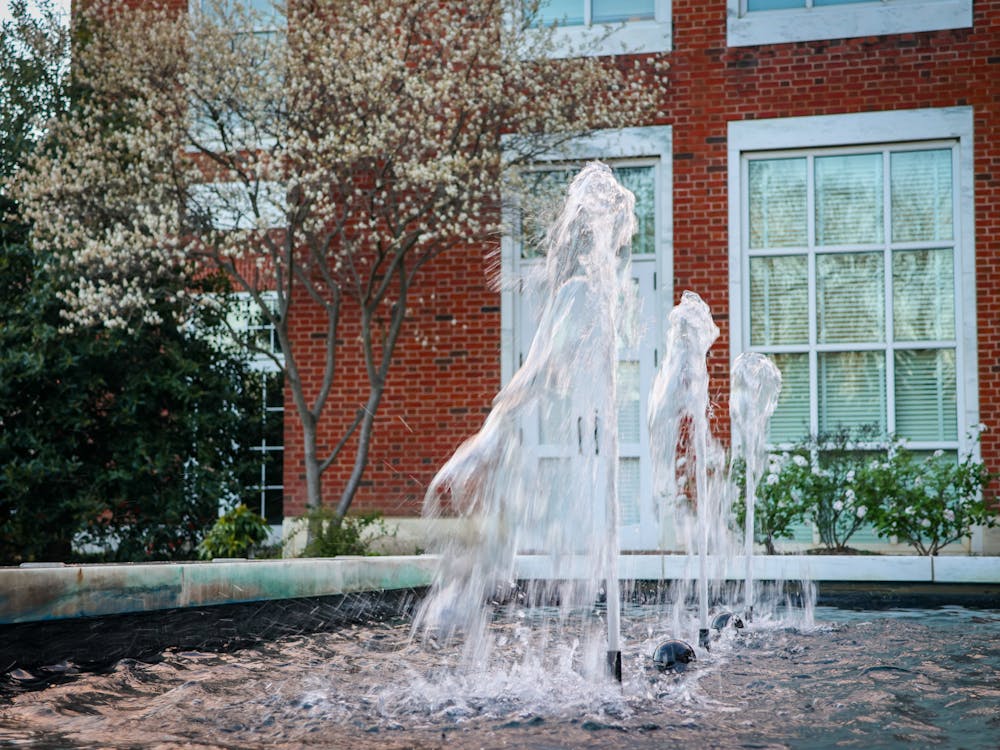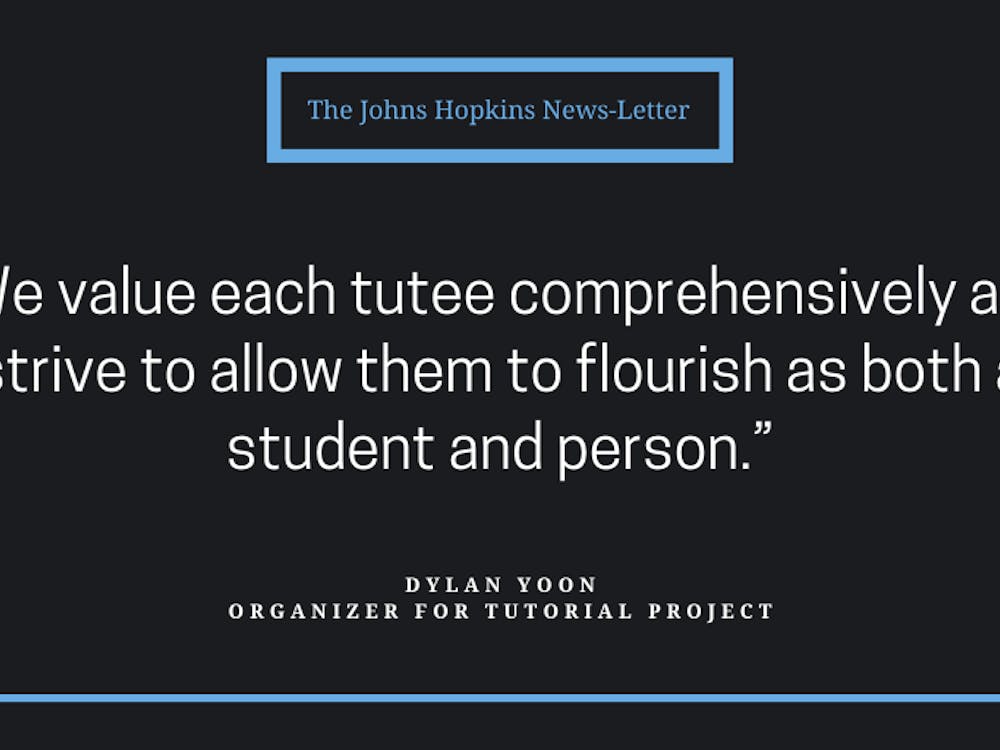The first Teach-In For Gaza, a conference organized by four graduate students in the department of anthropology in conjunction with Hopkins Students for Justice in Palestine (SJP), was held in Hodson Hall on Friday.
The event featured panels with guest lecturers from across the nation who addressed different aspects of the ongoing conflict between Israel and Palestine. Inspired by the violence that took place in Gaza this past summer, the guest lecturers discussed what they view as Israel’s settler colonial project and military occupation, as well as how these events impact students in Baltimore.
Mariam Banahi, a fourth year Ph.D. student in the department of anthropology and the lead organizer of the event, said that the goal of Teach-In For Gaza was to spark discussion about both the current situation and the history of conflict in Gaza.
“We created platforms of discussion with either people who are experts in the context and in their respective fields, or with those who had taken a political stance on the issue,” Banahi said. “It was designed as a teach-in with an open question-answer period so that people who did not agree with what was said could ask questions.”
Banahi said that the event was formatted to provide a general educational forum on the ongoing Israeli-Palestine conflict without limiting the scope of discussion to a specific viewpoint or time frame.
“The purpose of a teach-in is not necessarily to be balanced,” Banahi said. “There is so much of an emphasis on objectivity or being unbiased which, I think, poisons a lot of the knowledge and discussion produced. This assumes there are two sides and those who are pro-Palestine agree on every single gradation and those who are pro-Israel agree on every aspect. That actually is a bit of a distortion and ends up complicating discussion on Palestine-Israel.”
The teach-in, which was co-sponsored by the anthropology department; Program for the Study of Women, Gender, and Sexuality; Graduate Representative Organization; Center for Africana Studies; Humanities Center; International Studies Program and the Human Rights Working Group, attracted a diverse audience.
The entire conference consisted of three panels. The first panel, titled “Gaza and Operation Protective Edge,” was led by Ilana Feldman, a George Washington University (GWU) associate professor of anthropology, history and international affairs; Sa’ed Atshan a Brown University post-doctoral fellow in international studies and Allen Feldman, a New York University associate professor of media, culture and communication.
Ilana Feldman argued that humanitarian need is the best and only probable way for Palestinians to gain the attention of the world for help.
“Aid is not a substitute for human rights,” she said. “Palestinians are being denied a future, and the Gaza blockade must be lifted. The occupation needs to really end, not just being pursued from the air.”
Atshan spoke about his personal experiences with the conflict. While displaying personal photographs of friends and families being terrorized in Israeli air strikes, Sa’ed argued the ways in which Palestinians were being denied basic human rights.
“Children were killed while sleeping next to their parents in a U.N. safe-guarded shelter,” Atshan said. “Israel is acting completely contradictory to international peacekeeping laws, and this should be a source of universal shame.”
Atshan also said that he believes American media outlets offer a one-sided portrayal of the conflict.
“Palestinian acts of violence are showed as irrational acts of terrorism, whereas Israeli acts are rational and merely counteractive,” Atshan said.
Allen Feldman’s topic of discussion was genocidal desistance in Gaza. He is not an expert on the Israel-Palestine conflict and presented himself as an intellectual authority on the way communication and information transmissions occur through the media.
“The discourse on humanitarian issues has always been a debate on who or what counts as ‘human,’” Allen Feldman said. “Inhumanization is not the maltreatment of human beings, but rather the ideological practices and discursive structures that define humanity and the rights of human beings as a whole. There has been the issue of Zionist language and rhetoric overtaking the U.S. system of media.”
The second panel, titled “Settler-Colonialism and Military Occupation,” was led by Todd Shepard, an associate professor in the University’s history department, Shira Robinson, a GWU associate professor of history and international affairs and Rebecca Stein, associate professor of cultural anthropology at Duke University.
Shepard’s talk focused on the existence of lands without people and settler colonies from 1830 to 1962. He drew from his own studies on modern European history and modern colonialism to address modern-day Palestine.
Robinson addressed the issue of military rule before the 1967 occupation, particularly focusing on the Palestinian citizens of Israel. Stein spoke about the culture, militarism and dissent of the Israeli military occupation.
The third and final panel differed in style from the former two. Instead of a formal lecture headed by select speakers, it was formatted as an informal roundtable discussion. The discussion’s theme was “Boycott as Resistance and Academic Freedom.”
Independent scholar Steven Salaita, University of Pittsburgh Global Studies Center affiliate Sami Hermez, Wesleyan University Associate Professor of American Studies and Anthropology J. Kehaulani Kauanui and Columbia University Humanities Professor Bruce Robbins led the discussion.
“[We are] not going to bow down to the vested political interests that have their hands all over our universities,” Salaita said.
The questions addressed during the third panel touched upon academic freedom and censorship within universities, including dialogue on what Hopkins students can do to promote an active discussion and the freedom to pursue certain studies without limitations.
“We wanted to discuss what kinds of forms of resistance are possible to students in such an academic situation and climate of fear,” Banahi said, “and also what danger we are putting ourselves in by taking a position, especially a pro-Palestinian position.”
Banahi also talked about her feelings on how the Hopkins administration has addressed the Israeli-Palestinian conflict.
“[Hopkins] President [Ronald J.] Daniels and Provost [Robert] Lieberman brought the discussion to campus by rejecting the call without creating a space for dialogue,” Banahi said. “Whether or not people agree with the positions of the people we invited, we created a space and a platform for opening up discussion.”
Banahi said that she looks forward to continuing the dialogue about the conflict and about how controversial viewpoints are addressed at Hopkins.
“My favorite part is that [this event] is not over,” Banahi said. “A lot of the discussions are ongoing, and the faculty who visited have started speaking to each other — even about organizing future meetings. The dialogue is not over. This discussion is coming to Hopkins whether people like it or not.”






















Please note All comments are eligible for publication in The News-Letter.